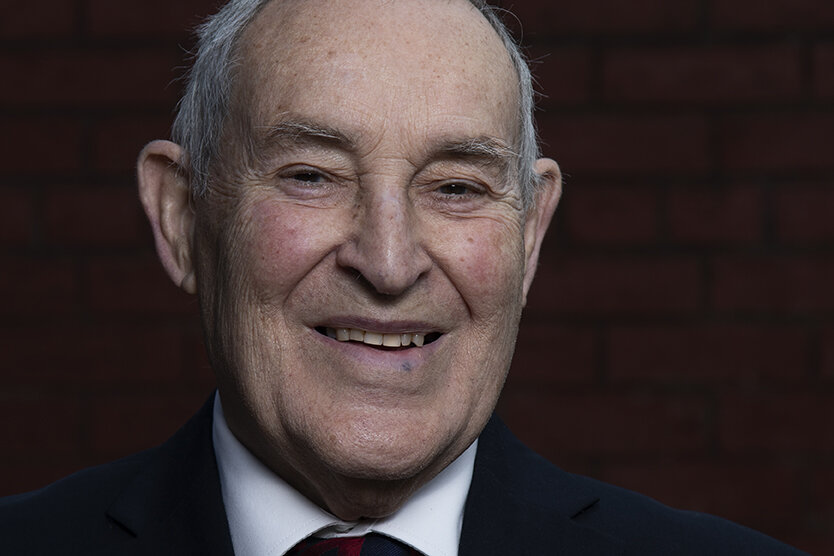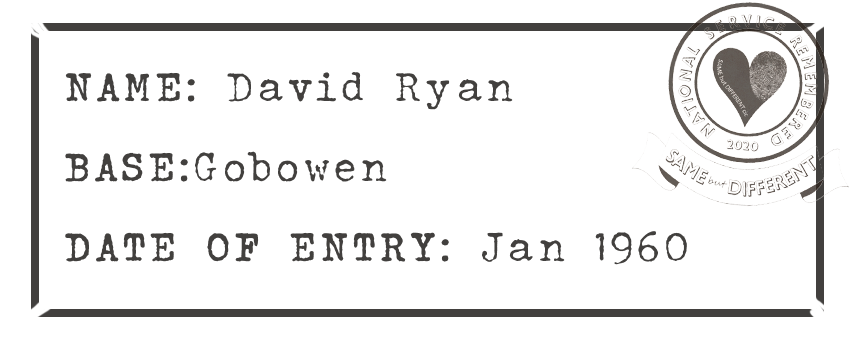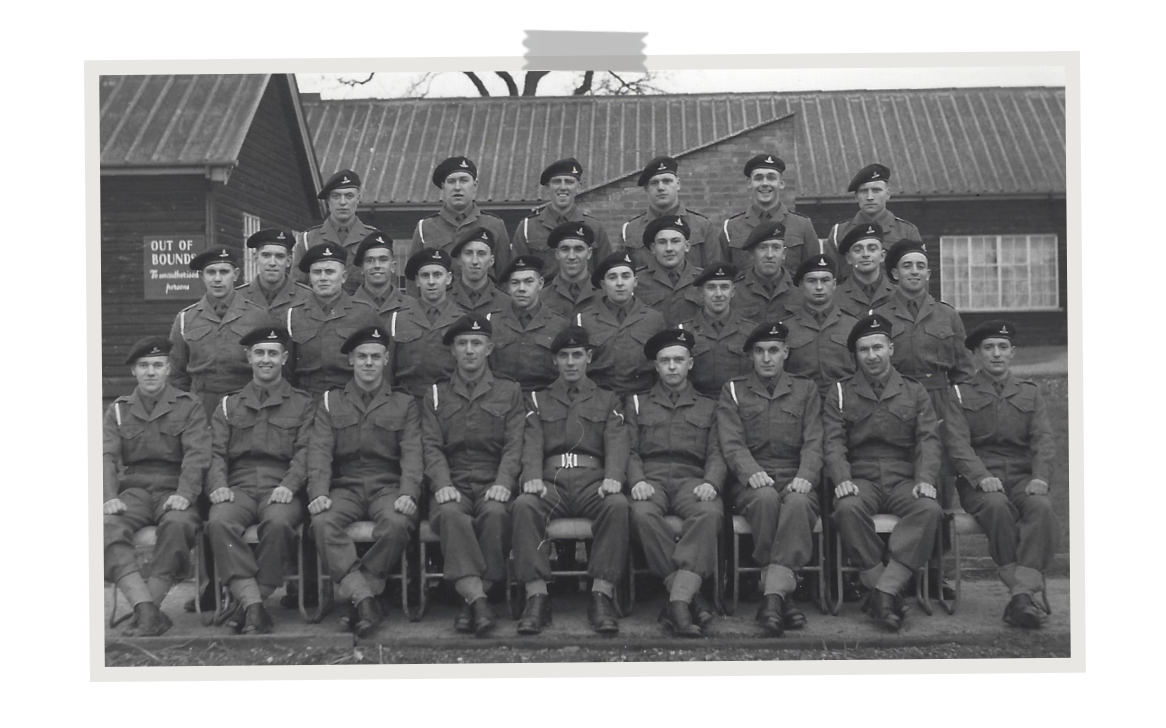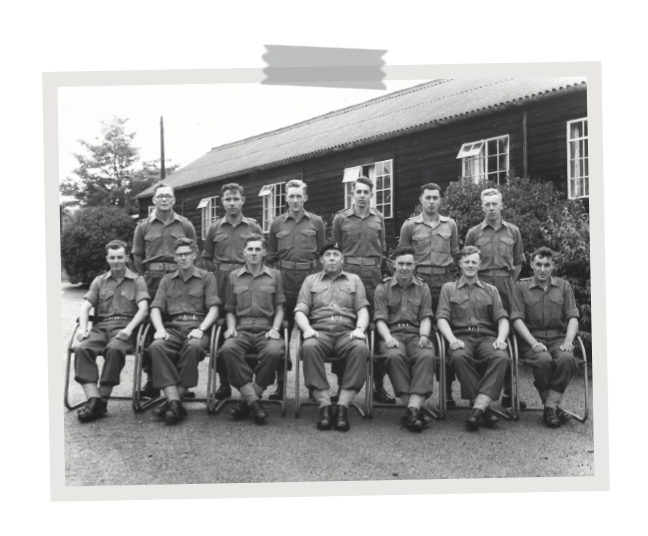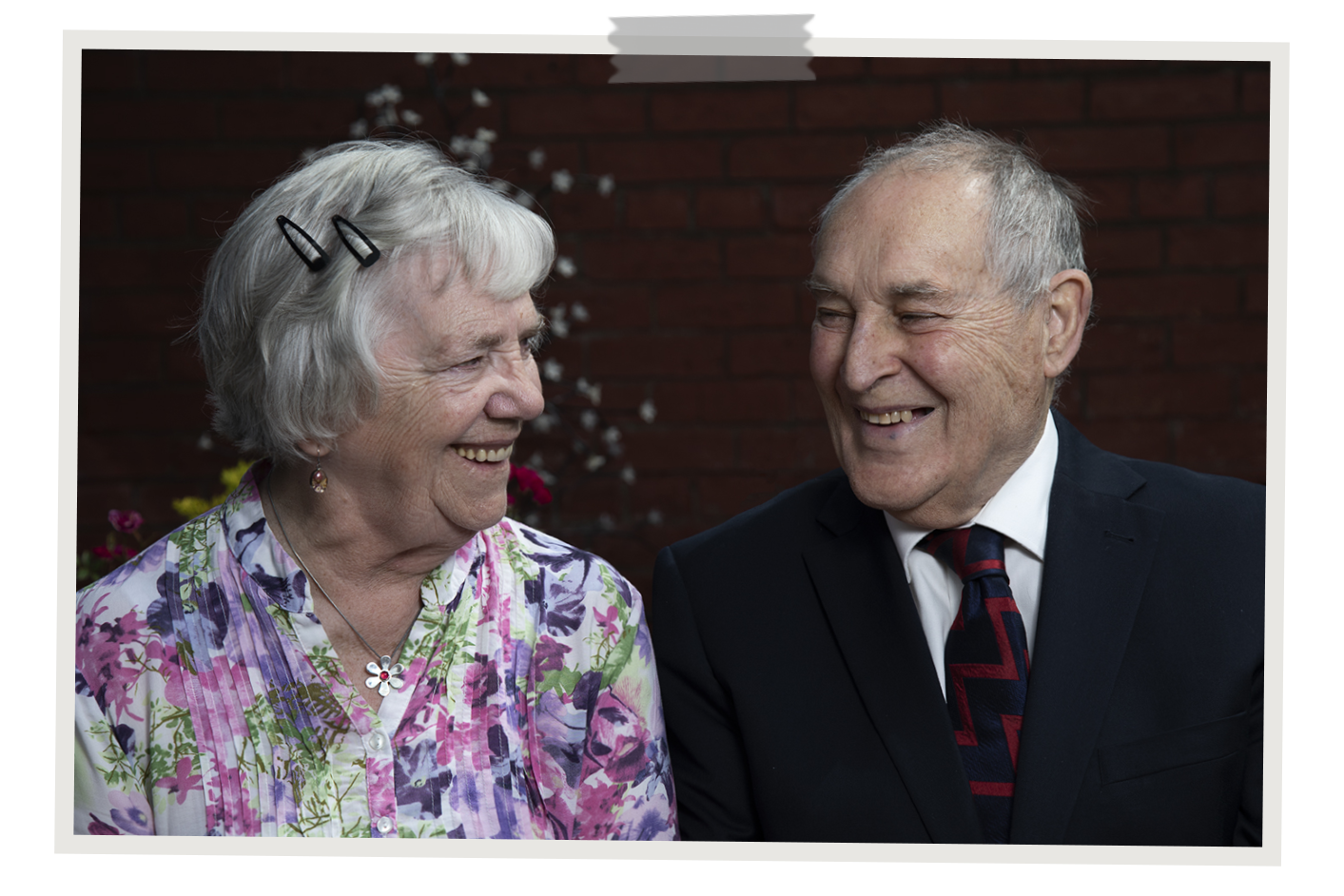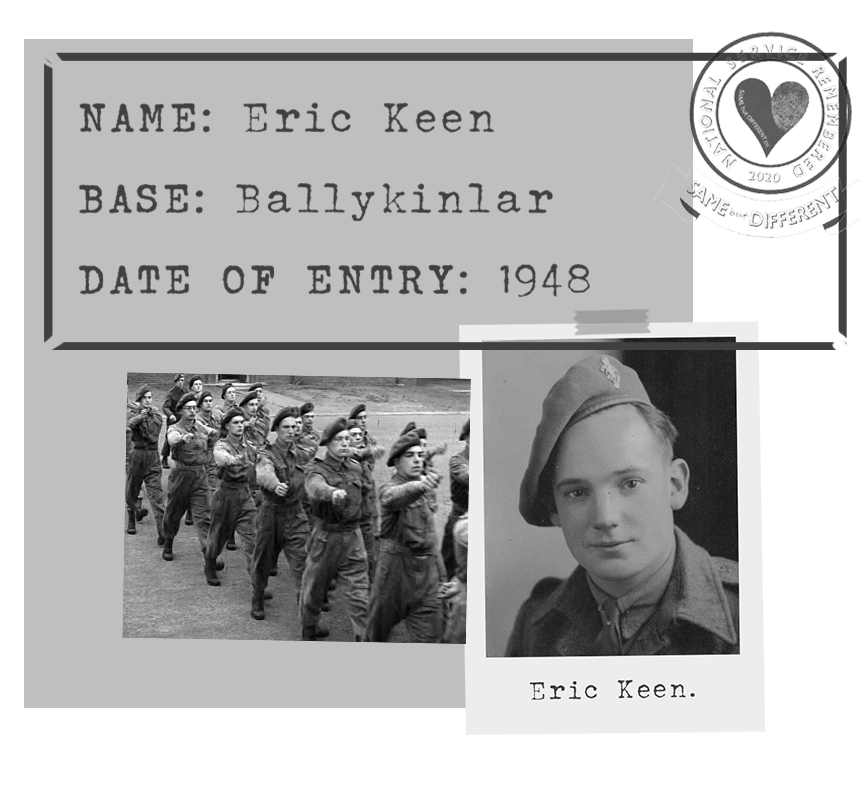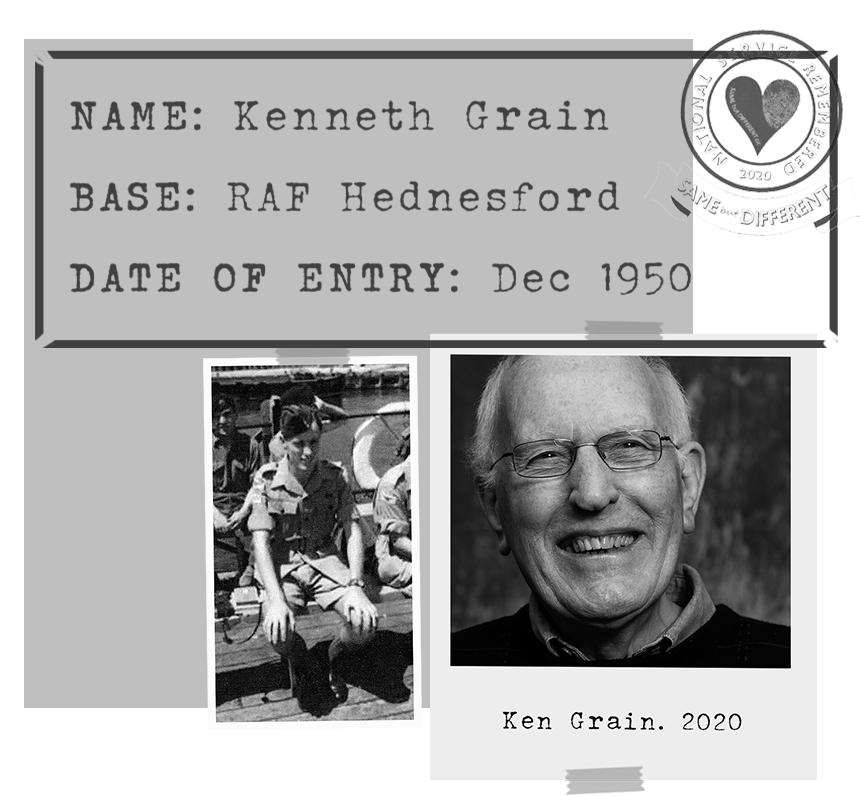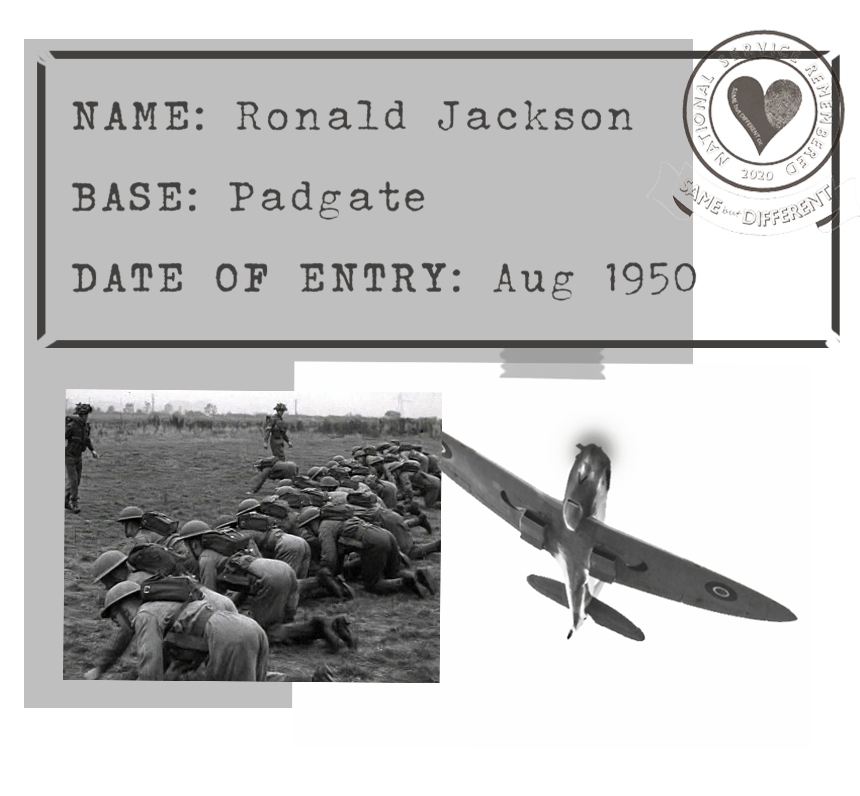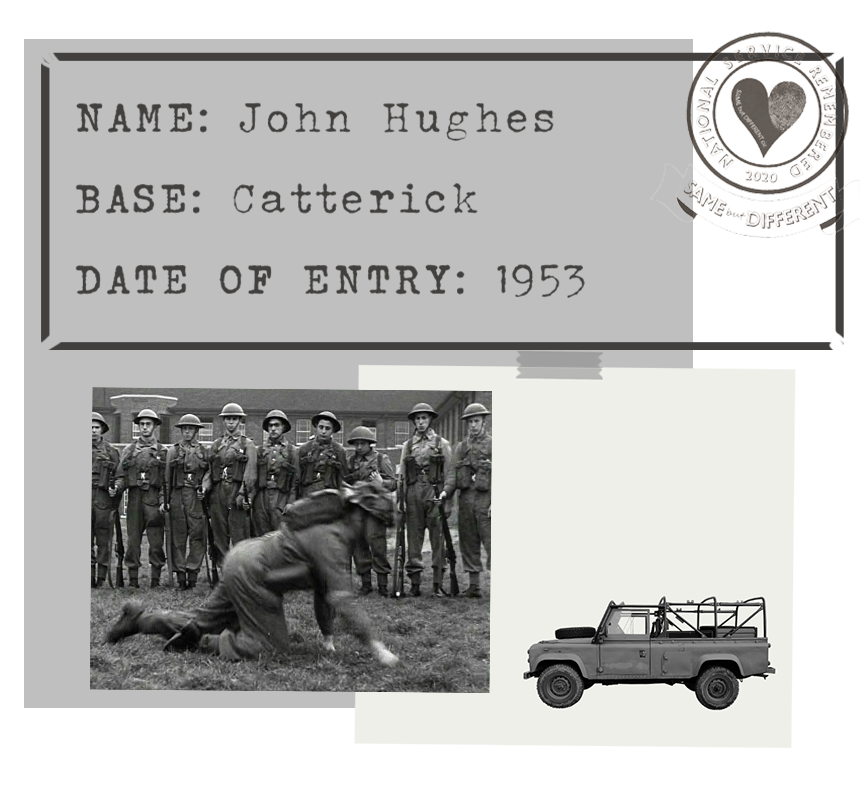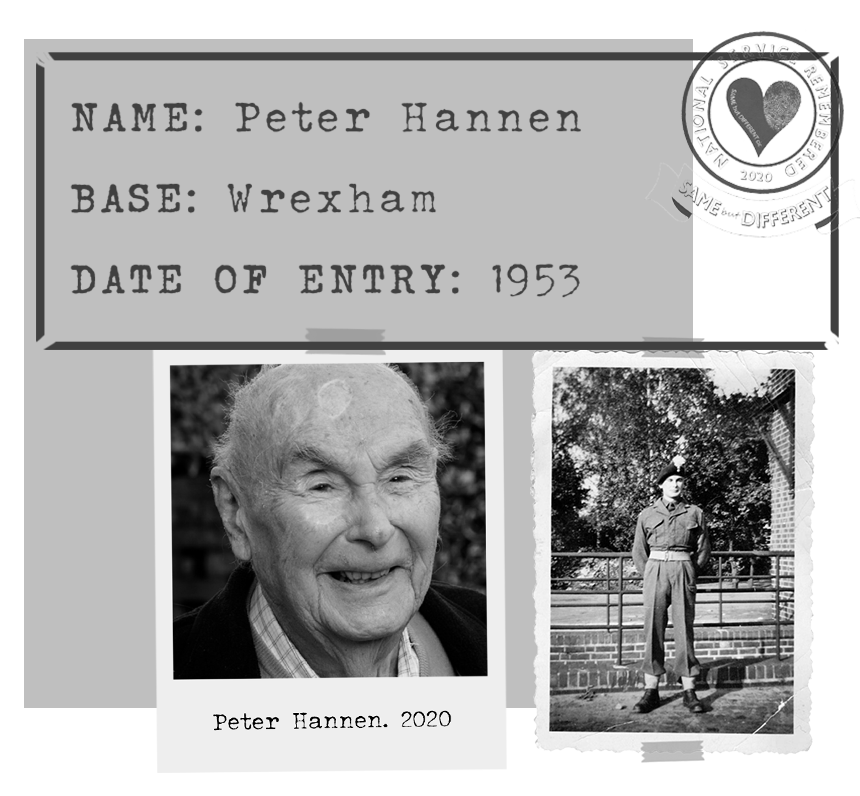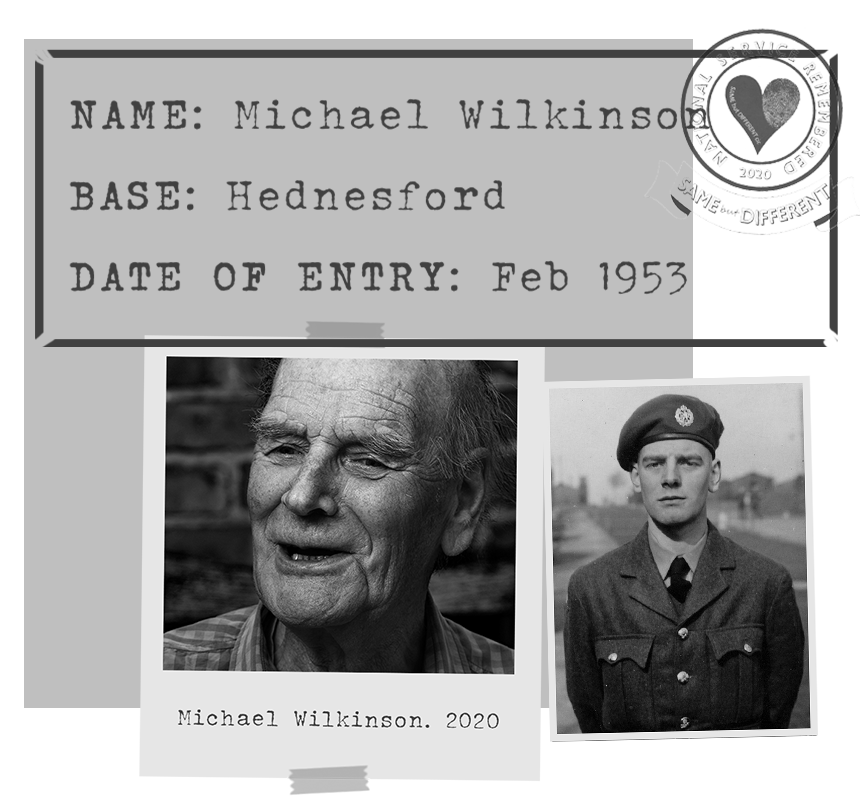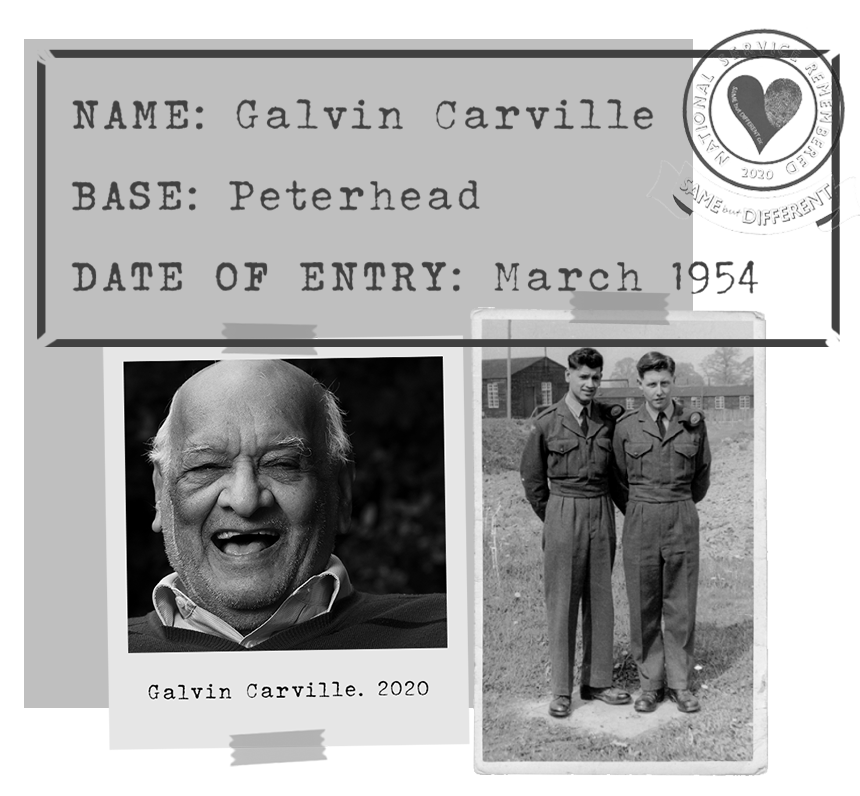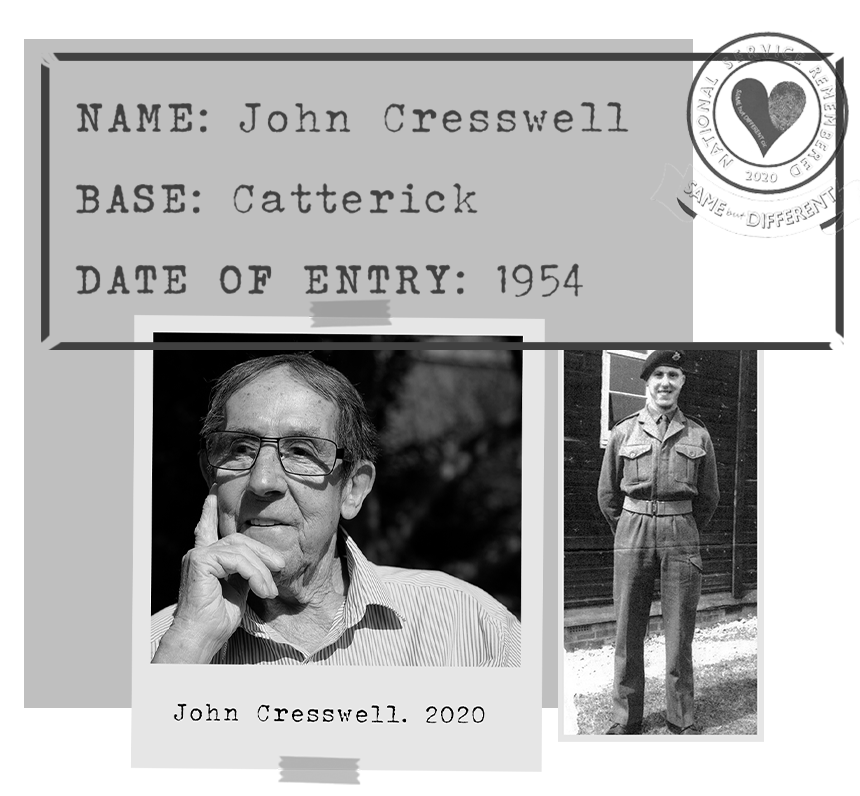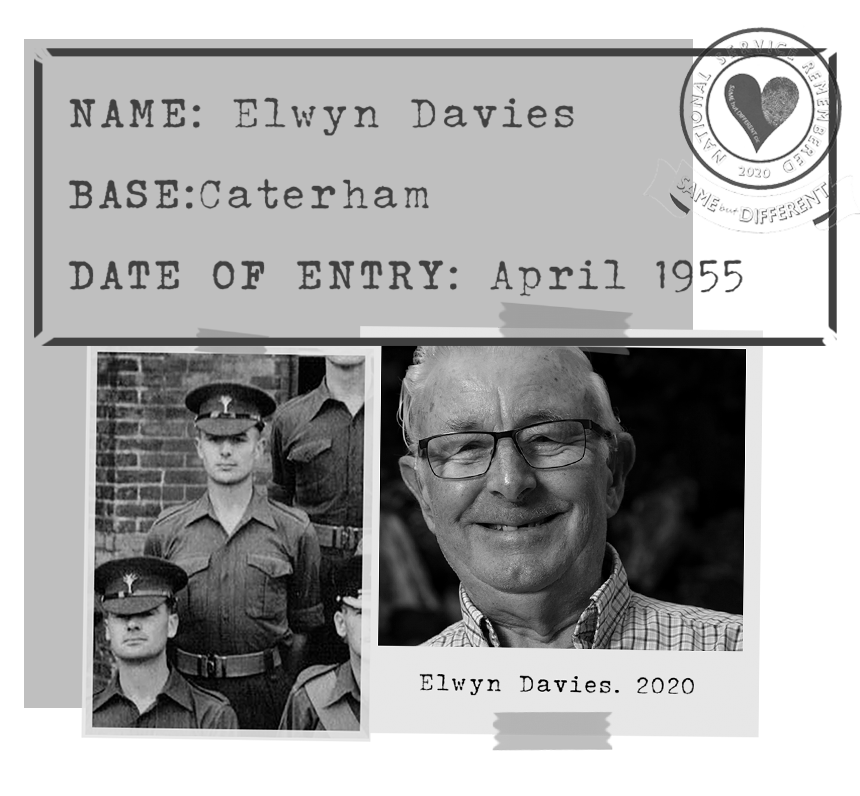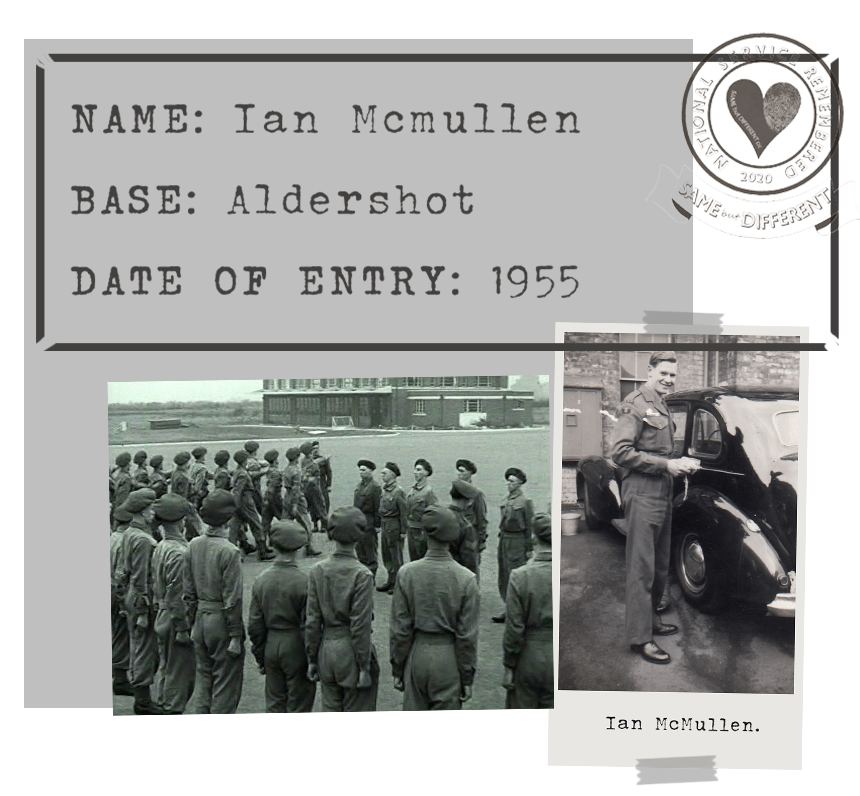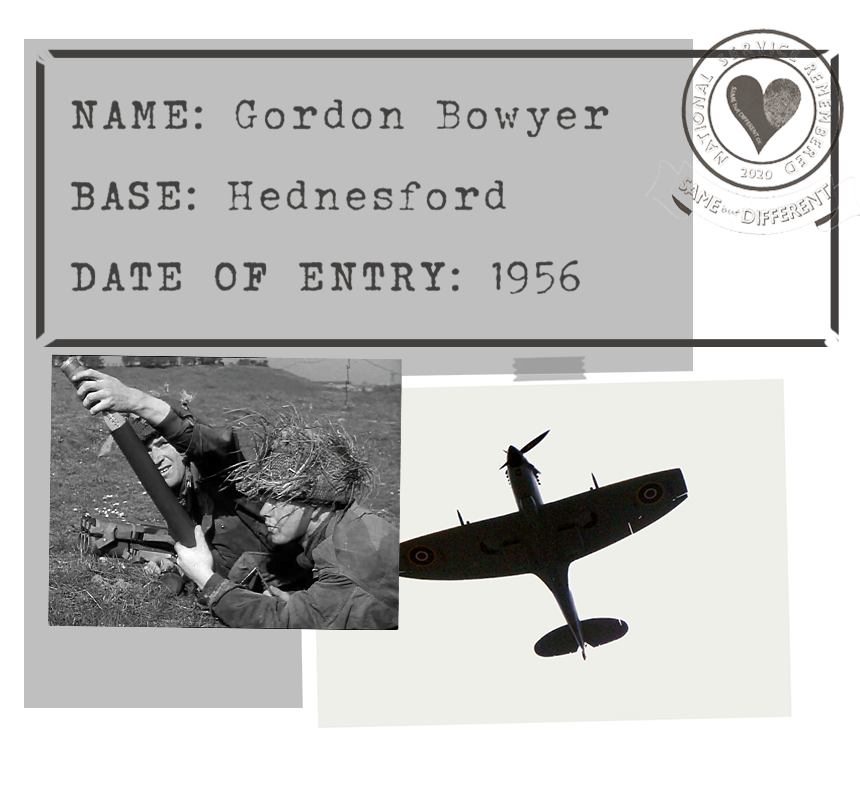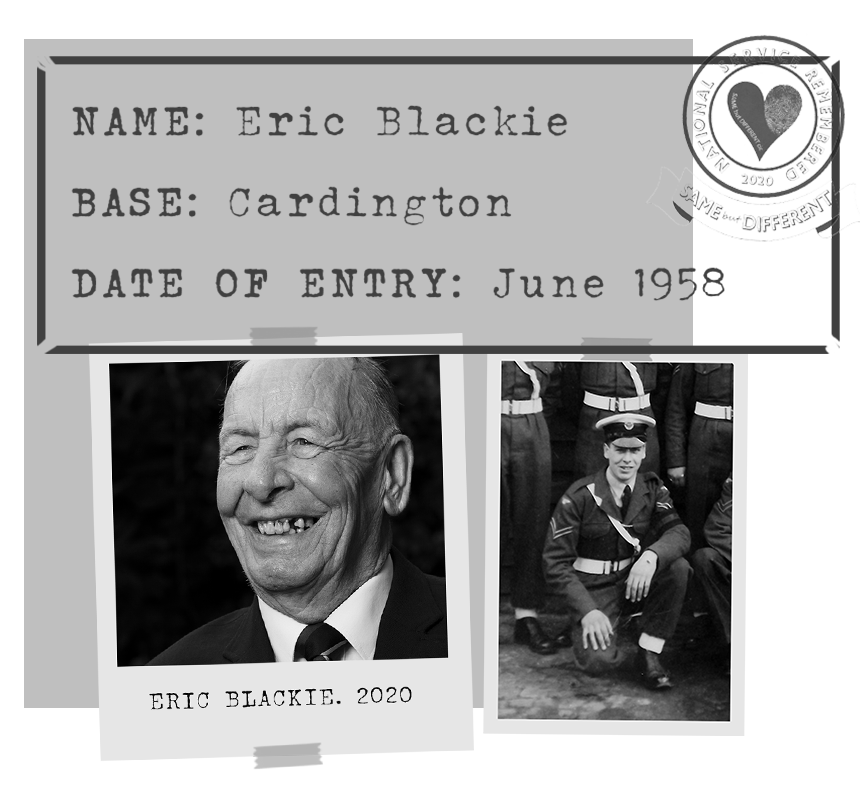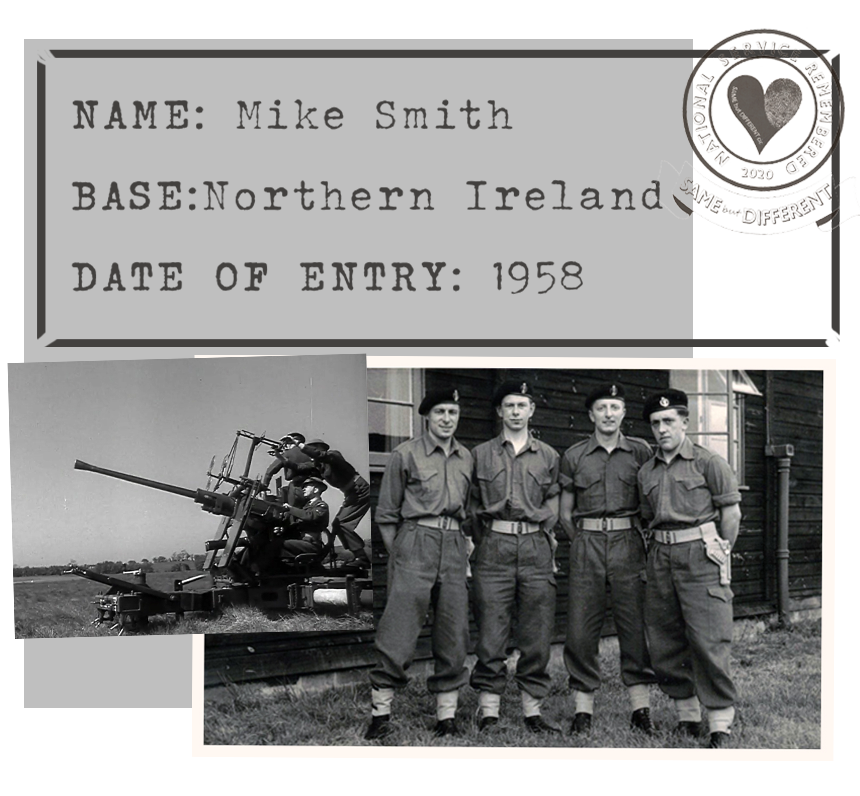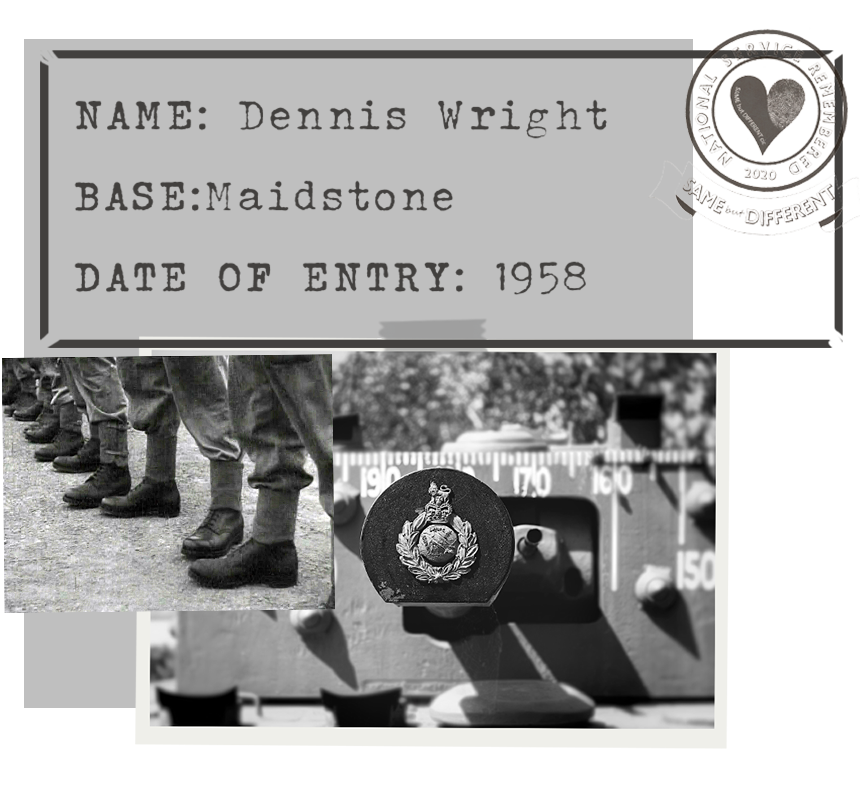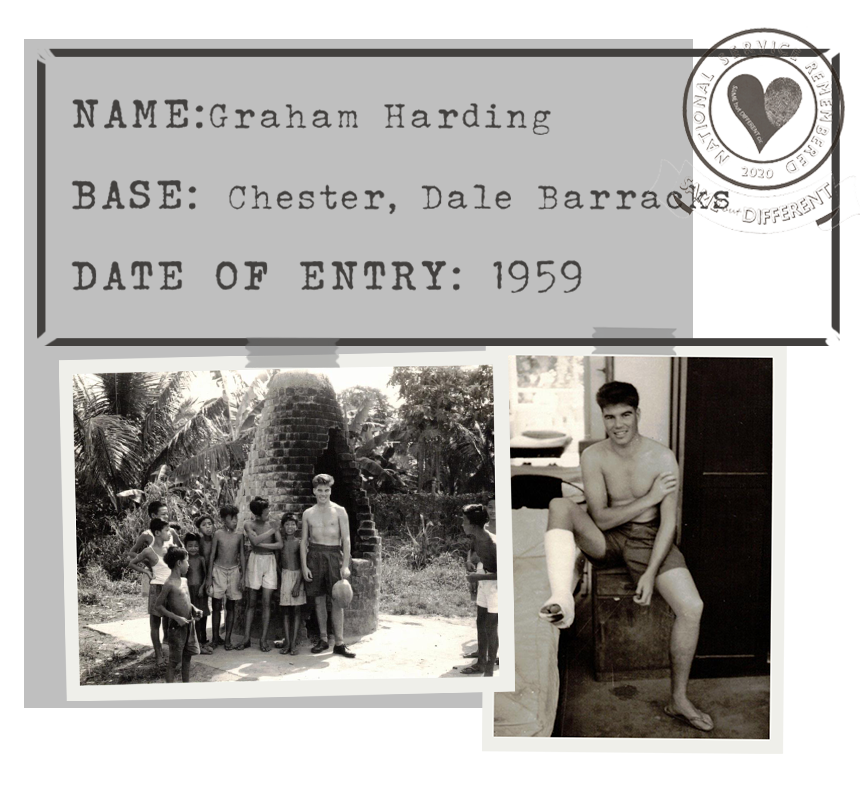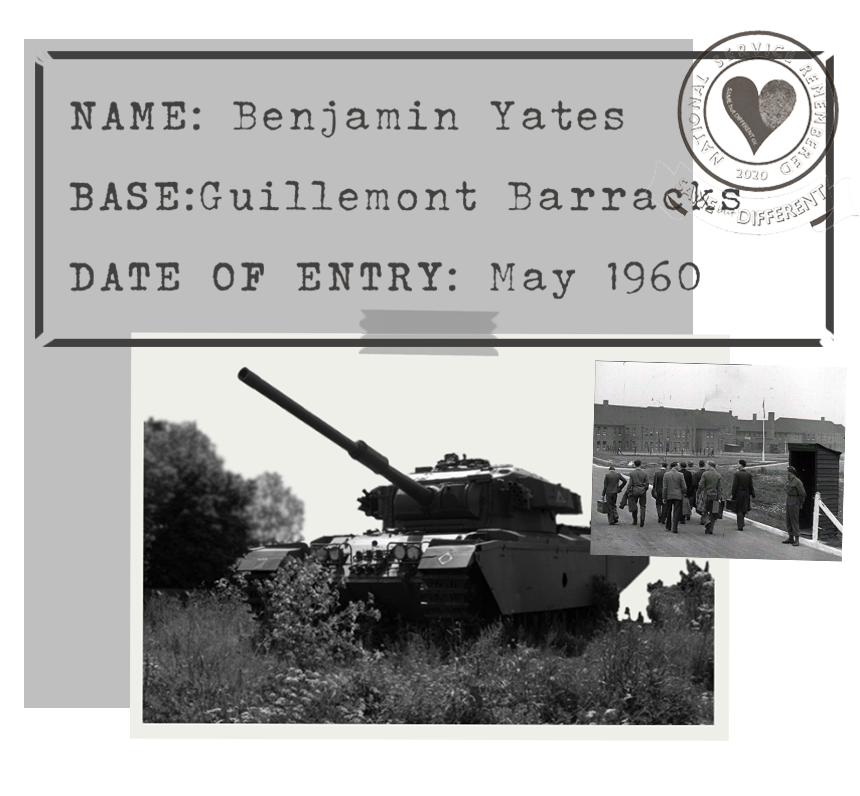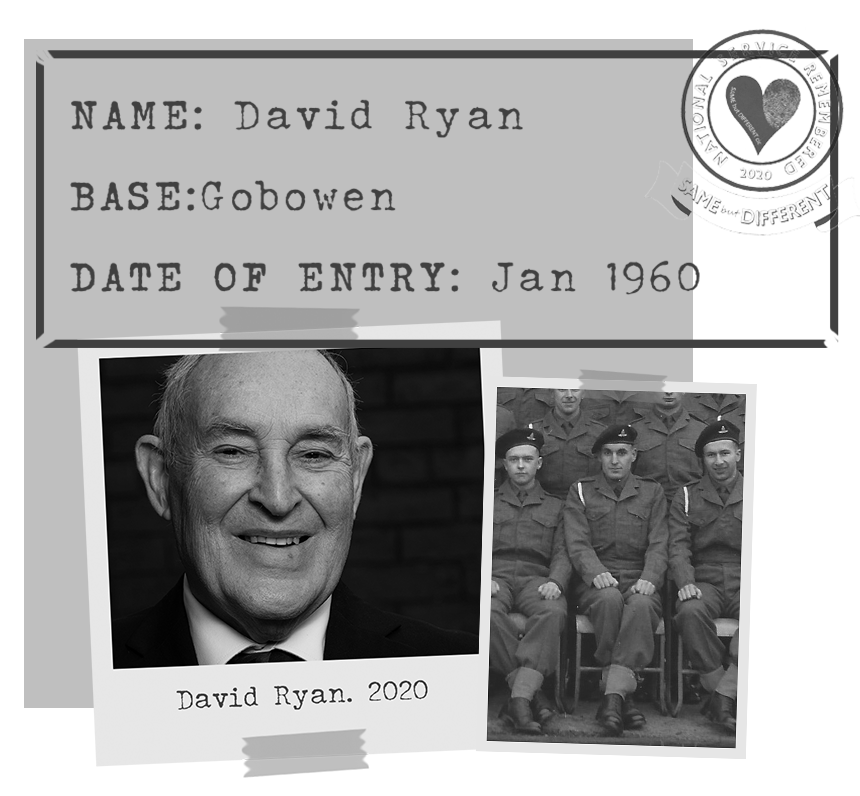“As time went by, you end up taking pride in your uniform, your squad and your regiment.”
I went in at 22 in 1960 and was one of the last to go in - National Service as a whole finished later that year.
I was working part-time in an office in York because I’d just come out of university the previous summer and knew call up was imminent. They send you a call up notice for a certain date along with a railway train warrant that enables you to hop on a train and go to where they want you, which was to Gobowen. I’d never heard of it.
When we got off, it was getting on for night-time and there was an intake coming in from all different parts of the country. They got us on board 3-tonne trucks and took us out to Park Hall camp and that’s where it started, 6th January 1960.
During our basic training, we weren’t allowed out. The army’s psychology is brilliant because they coop you up and they make you do lots and lots of cleaning kit and so on, and before you know where you are, you’re a squad. It’s brilliant psychology.
Eventually, after a few weeks we were allowed out to the Garrison Theatre which is where they held the dances, beautiful floor, very good resident band. It was the 13th February, Valentine’s Day, but in those days they didn’t have dances on a Sunday so this was Saturday 13th. In through the door walk these attractive looking girls: my wife, her sister and cousin. We met that night. After a few weeks, I was posted down to Aldershot and used to hitchhike miles back to see her. Yesterday was 60 years since the day I proposed in Shrewsbury and that was within 10 weeks of meeting; we married in June 1961.
“It was the 13th February, Valentine’s Day, but in those days they didn’t have dances on a Sunday so this was Saturday 13th. In through the door walk these attractive looking girls: my wife, her sister and cousin. We met that night. ”
National Service was just something that you had to do. I’d been at grammar school where we’d had a Cadets Force so I knew all about marching and drills, it wasn’t news to me. I managed to get on well with it and I enjoyed it really. People do sneer but it’s an ability of the army to mould a disparate group of people, in a mucky looking hut, into a squad and by the end of a few weeks they were mates. Next to me was a Scotsman who was keen on the drink, twins who cried their eyes out the first night because they’d left home and never been away before and one who’d just come out of jail.
They keep you busy and they operate this psychological common enemy, normally a sergeant or NTO of some type. So, together and determined to come out on the right side, there was so much competition between the two squads that it works beautifully. As time went by, you end up taking pride in uniform, your squad and your regiment. It struck me as a good and useful experience. I was in the army, Royal Artillery; Oswestry was a Royal Artillery training regiment. I finished in anti-aircraft and became an Officer. I was commissioned in the regiment but it didn’t get very interesting. I didn’t get any further than Folkestone but we managed to keep the Russians out of Folkestone in 1961.
Quite a few of my contemporaries went abroad, Germany or, if lucky, Singapore. We all put in for it but it’s the luck of the draw. It was fun.
Once I’d finished basic training, I went to Aldershot to do officer training, officer cadet school, and that was tough. They had some folks to run us around, warrant officers, and they would really dress you down and then they would put ‘Sir’ at the end of it as you were officer cadets by then. We passed out from there, posted to the regiment. Things were quiet, no real conflict in my time.
We went to South Wales to an anti-aircraft camp and we used to fire all these anti-aircraft guns over the sea. We used to have a second world war mosquito flying over, straight and low, a nice easy height. It carried a drone behind the target, several yards behind as they didn’t want to shoot the plane out of the sky, which we didn’t. Apart from that, we had the usual sort of training and learning about guns, how to strip things down.
One of the summers, 1961, our regiment was picked to assist the running of the Bisley shooting competitions, so we had to run this and set up the targets. I did a lot of running and it was the fittest I’d ever been. A blazing hot summer working out in the sun. Just one of the good memories. One of my friends had gone straight into the army at 18. He was in Korea as an Officer, as a boy of 18 leading patrols. It was horrendous apparently, we had a magnificent time compared to them.
“They had some folks to run us around, warrant officers, and they would really dress you down and then they would put ‘Sir’ at the end of it as you were officer cadets by then.”
The option to sign on for longer was there but I was married by the time I left National Service.
We married in Westbury, between Shrewsbury and Welshpool, and we had digs down in Folkstone while I was stationed at the camp, and in no time at all we had a daughter.
I can’t remember exactly how much I was paid but I do remember the rent for the flat was 4 guineas a week and I think I was paid a couple of meager pounds, even as an officer, and out of that had to pay mess bills and socialise. I wasn’t keen but you had to, so a fair section of that went out. Heather worked in Barclays Bank and got a job working locum for banks in Kent. She worked in Dover and Hythe which supplemented our joint income and we had enough for the flat, food and stuff for the baby. People struggle at the beginning but who doesn’t. It was fun.
Near the end of National Service, some who I was in the regiment training with, had been out in Cyprus where they were likely to shoot the wives when out shopping. Then there was the crisis in Kenya just a few years before and Ireland of course. During National Service, we got married and went to Ireland for our honeymoon but the troubles hadn’t begun then. We all went our separate ways afterwards.
Just before I was coming out we started thinking about what I was going to do for a career, most likely teaching.
My wife spotted an advert in the paper, for a teacher in New Zealand. If interested we had to get in touch with New Zealand house in London and Heather thought it was a good excuse to go shopping. We went to New Zealand house in Trafalgar Square and had a pleasant interview. Before long, Sally was born but the shipping company wouldn’t allow a small child onboard as they wouldn’t take the responsibility. I went out first with Heather following a few weeks later. She went off with this baby, across the world, at 19. It was quite brave.
We sailed of course, you couldn’t fly in those days, so sailed one way, and after 3 years sailed the other way so we have circumnavigated the globe. But the irony is, we ended up a mile away from where we met. We live in Gobowen.
We could have stayed in New Zealand, and I would recommend it to anyone, but we had family back here and we felt a bit cruel taking the first grandchild away. When you’re young, you’re a bit rash. It was a great experience and we had another daughter out there.
I’m not one that thinks you should bring National Service back, decades have moved on but for our time it was useful and certainly Park Hall with its dances, exercises and ranges, marching in the countryside was a nice place to be. I even remember sleeping under a tree one night.


